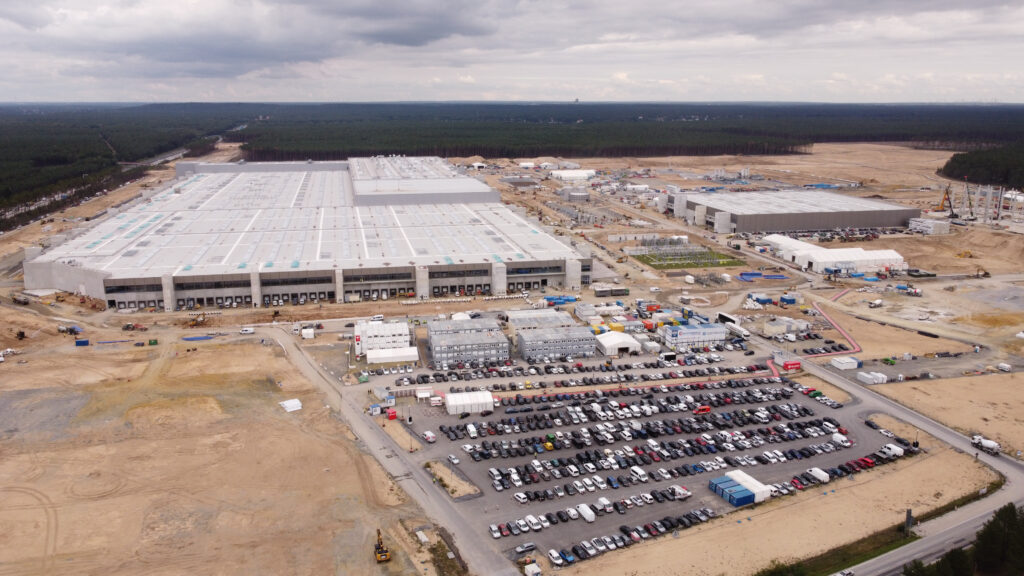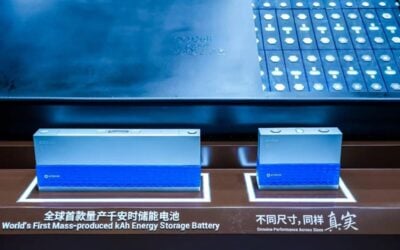
Four winners have been selected to receive financial incentives from India’s government, to support plans to build 50GWh annual manufacturing capacity of advanced batteries for EVs and ESS.
The Ministry of Heavy Industries officially announced the winning bidders that competed for funds through the Production Linked Incentive (PLI) for Advanced Chemistry Cell (ACC) Battery Manufacturing today.
Enjoy 12 months of exclusive analysis
- Regular insight and analysis of the industry’s biggest developments
- In-depth interviews with the industry’s leading figures
- Annual digital subscription to the PV Tech Power journal
- Discounts on Solar Media’s portfolio of events, in-person and virtual
PLI schemes exist for other technologies like solar cells, electronics and electric vehicles, with the government describing battery manufacturing as one of this century’s “largest economic opportunities”.
A pot of INR181 billion (US$2.42 billion) has been made available for gigafactories with at least 5GWh of annual production capacity per site. The incentives will be disbursed over five years, and the factories must be operational within two years.
The winners:
| Applicant | Capacity quoted | Capacity awarded |
| Rajesh Exports Limited | 5GWh | 5GWh |
| Hyundai Global Motors | 20GWh | 20GWh |
| Ola Electric Mobility | 20GWh | 20GWh |
| Reliance New Energy Solar | 20GWh | 5GWh |
India Energy Storage Alliance (IESA) president Dr Rahul Walawalkar told Energy-Storage.news that with the awards and the promise of a quick start to advanced battery manufacturing in the country, India has taken a step towards realising the alliance’s “dream of becoming a global hub for R&D and manufacturing of advanced energy storage technologies”.
While the awardees are mostly in the automotive space, Reliance New Energy Solar, a subsidiary of Indian industrial heavyweight Reliance Industries is very much in the renewable energy sector. In the last few months, Reliance New Energy has bought up UK startup Faradion, which works on sodium-ion battery tech and Lithium Werks, which makes lithium iron phosphate (LFP) batteries.
Reliance had bid for support for 20GWh of manufacturing capacity and was awarded PLI for 5GWh through the scheme, with a further 15GWh on the waitlist. It was also a winning bidder under the PLI scheme for solar module and cell manufacturing.
A further five companies, Mahindra & Mahindra, Exide Industries, Larsen & Toubro, Amara Raja Batteries and India Power Corporation were also waitlisted for capacity plans ranging from 5GWh to 15GWh.
The competitive solicitation process had been oversubscribed, with 130GWh of plans submitted.
‘Next couple of years are critical’
Dr Rahul Walawalkar from IESA said it was great to see not just the winners of the scheme announced, but that at least five other groups plan to go ahead with gigafactory investments in India within the next two to three years.
“The next couple years are critical for India to focus on technology partnerships, skill development and capacity building to support the gigafactories as well as complete supply chain,” the IESA president said.
IESA was among stakeholders that had input into the programme’s design and Walawalkar said that the organisation is now working with government think tank NITI Aayog, the Ministry of Power and Ministry of Heavy Industries to ensure demand creation policies and initiatives are accelerated in the next couple of years.
Companies that have shown the first-mover initiative in the space should be able to benefit from that leadership, he said.
A further 20 or so more bids are expected to come in for another PLI scheme on Niche ACC technologies when it launches in September this year, which would add an additional 5GWh of annual manufacturing capacity in the country.
India’s Central Electricity Authority has modelled a need for 27GW/108GWh of battery storage by 2030 to meet national goals of adding 500GW of renewable energy capacity from solar and wind, while battery storage could be an export opportunity as well.
Dr Walawalkar said IESA’s roadmap for the manufacturing sector targets India having at least 25GWh of production capacity by 2025, more than 70GWh by 2027 and over 100GWh by 2030.
By 2027, IESA anticipates the split of India’s battery manufacturing capacity will be about 60:40 between EVs and ESS.






